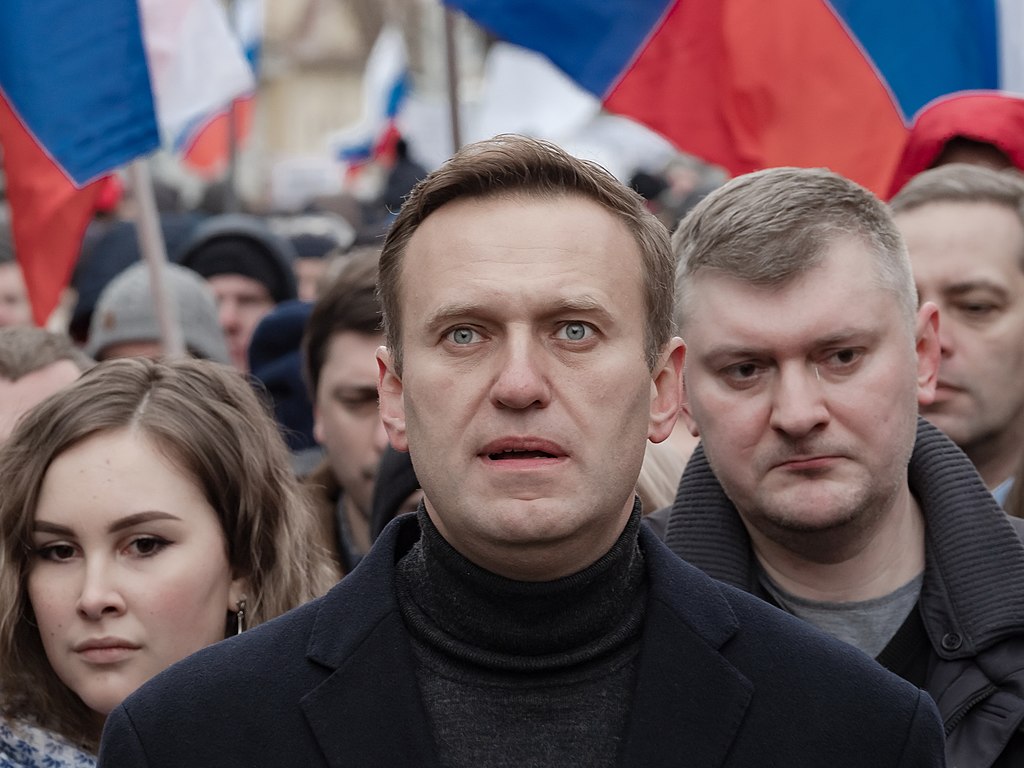Alexei Navalny is being mourned as Russia’s most daring, sophisticated and Western-looking politician. Yet Navalny’s political struggle with tyranny, which ended in an Arctic penal colony in what looks like state-sponsored murder, makes his ‘life and fate’ very Russian – part of a tradition of moral defiance against cruel and deceitful autocracy.
A fated opponent
Navalny would have been a successful politician in a democratic country. But he was a political opponent in Putin’s Russia, which has evolved from a corrupt authoritarian state into a thuggish, brutal dictatorship. One cannot pursue a political career in present-day Russia: you can either be the Kremlin’s loyal servitor or part of the ever-silent narod (common people). Any sign of disloyalty or opposition is suppressed. Navalny was aware of this better than anyone else: back in 2020, he was poisoned with a nerve agent by Putin’s secret police goons. Yet he returned to Moscow from Germany after life-saving treatment, knowing full well that he would be immediately arrested and thrown behind bars.
What might explain this seemingly irrational move? Navalny’s return to Moscow – that fateful day – marked the veritable beginning of his Russian story. The history of Russian intelligentsia, Russian literature, traditions of political dissent and truth-telling, and the quasi-religious quest for a virtuous life are elements of its plot.
Russian writer Dmitry Glukhovsky observes that Navalny, the real man of flesh and blood, warts and all – full of all sorts of contradictions given his flirtation with Russian ethnic nationalism – had turned into an ‘irreproachable hero, part of a religious myth’. His deeds, courage and moral choices, Glukhovsky adds, are perceived as symbolizing ‘the life of a saint; the death of a martyr’.
Resolute moral standards
The Russian intelligentsia, which emerged as a social group in the 1830s, pursued moral perfectionism. Their strong aspirations were born of two confluent intellectual traditions: one religious, stemming from Eastern (Byzantine) Christianity; the other, a secular legacy of Enlightenment moralism. The notion of sovest’ (conscience) was at the heart of the early Russian intelligentsia’s ethos. Having a ‘clear conscience’ – living unflinchingly according to the precepts of truth – was a deep-rooted, social ideal of the intelligentsia.
Historically, the Russian intelligentsia arose out of confrontation with Tsarist autocracy. Opposition to the bureaucratic institution shaped the intelligentsia’s rules of conduct and beliefs about what was right or wrong. As Russian cultural historian Boris Uspensky writes, ‘It is precisely the intelligentsia/Tsar dichotomy that lies at the origins of Russian intelligentsia.’ A Russian intelligent is always in opposition, their moral values contrasting with the workings of a repressive state system.
With the collapse of the Soviet Union, the intelligentsia may have left the historical scene. However, their moral principles did not disappear: many Russians internalized intelligentsia ideals by reading classic Russian literature, which in its turn had been the product of Russian intelligentsia’s creative efforts. Not unlike medieval Old Russian literature, which is thoroughly religious in nature, the great Russian nineteenth and early twentieth century novel performs a didactic function: it expounds on a life of dignity, the never-ending struggle between Good and Evil, and the choice between Truth and Falsehood. In many memoirs and interviews, prominent members of the Soviet dissident movement confirm that the subversive, ‘quasi-religious’ essence of Russian literature had shaped their moral principles and negative attitude towards the ‘immoral’ Soviet system.
The martyr’s rule

Alexei Navalny, 2020. Image via Wikimedia Commons
Alexei Navalny, born in 1976, belonged to a new Russian generation: he was a teenager when Communism fell and the Soviet Union disintegrated. Yet the factors that formed his moral outlook appear to be the same as those that were at work during previous decades. Russian literature seemed to have played an important role. In a letter he sent to Russian opposition journalist Sergei Parkhomenko not long before his death, Navalny discussed some Russian classics. He focused on Chekhov’s stories and compared the dark realism of some pieces with Dostoevsky’s oeuvre. The letter ended with a telling exhortation: ‘One has to read the classics. We don’t know them well enough.’ It is also difficult to avoid the direct parallel between Navalny’s passionate desire for truth and the Russian literary and dissident tradition of truth-telling, best epitomized by Alexander Solzhenitsyn’s 1974 essay Live Not by Lies; all of Navalny’s live streams invariably ended with the phrase: ‘Subscribe to our channel: here we tell the truth.’
Alexei Navalny’s moral rectitude, personal courage and fearless determination to stand by his principles, no matter what, put him on par with a long line of Russian victims of political repression, who have defied the Russian Leviathan over the last two centuries. The fragmented Russian opposition now has a powerful hero myth and symbol to rally around. Putin (or ‘bunker grandpa’, as Navalny used to mockingly call him) was afraid of his most prominent political opponent when he was alive. Now that Navalny is dead, Putin arguably finds himself in a worse situation. The Kremlin tyrant should be reminded of Søren Kierkegaard’s famous maxim: ‘the tyrant dies and his rule is over; the martyr dies and his rule begins.’

